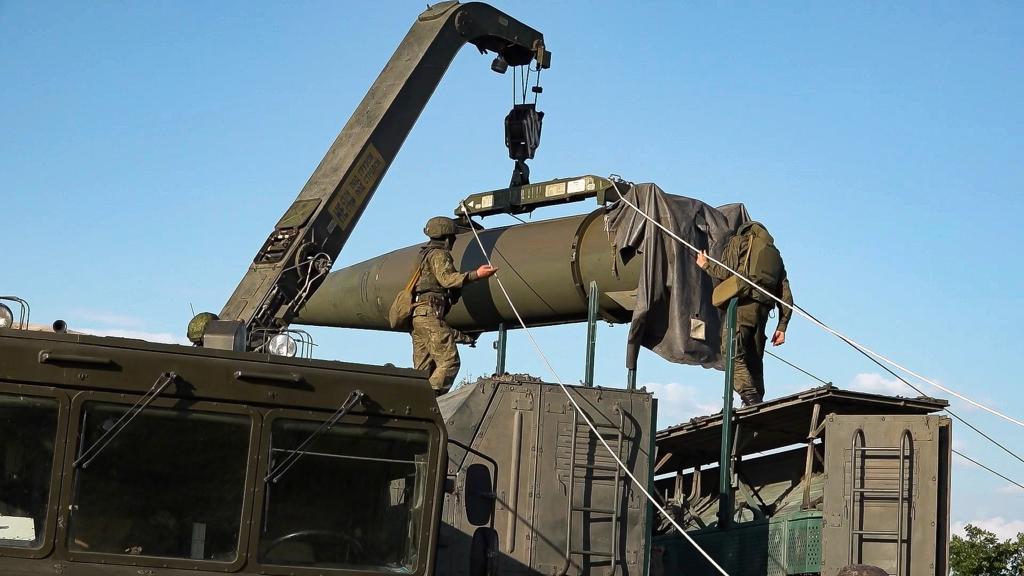A U.S. intelligence assessment has concluded that Russia may use its lethal new intermediate-range ballistic missile against Ukraine again in "coming days," a U.S. official said Wednesday.
The experimental Oreshnik missile is seen by U.S. officials more as an attempt at intimidation than a game-changer on the battlefield in Ukraine, according to a U.S. official who spoke on condition of anonymity to discuss the sensitive information.
The official said Russia has only a handful of the missiles and that they carry a smaller warhead than other missiles that Russia has regularly launched at Ukraine.
Russia first fired the the weapon in a Nov. 21 missile attack against the Ukrainian city of Dnipro. Surveillance camera video of the strike showed huge fireballs piercing the darkness and slammed into the ground at astonishing speed.
Within hours of the attack on the military facility, Russian President Vladimir Putin took the rare step of speaking on national TV to boast about the new, hypersonic missile. He warned the West that its next use could be against Ukraine's NATO allies who allowed Kyiv to use their longer-range missiles to strike inside Russia.
The attack came two days after Putin signed a revised version of Russia's nuclear doctrine that lowered the threshold for using nuclear weapons. The doctrine allows for a potential nuclear response by Moscow even to a conventional attack on Russia by any nation that is supported by a nuclear power.
That strike also came soon after President Joe Biden agreed to loosened restrictions on Ukraine's use of American made longer-range weapons to strike deeper into Russian territory.
"We believe that we have the right to use our weapons against military facilities of the countries that allow to use their weapons against our facilities," Putin said at the time.
The Pentagon said the Oreshnik was an experimental type of intermediate-range ballistic missile, or IRBM, based on Russia's RS-26 Rubezh intercontinental ballistic missile, or ICBM. The attack marked the first time such a weapon was used in a war.
Intermediate-range missiles can fly between 500 to 5,500 kilometers (310 to 3,400 miles). Such weapons were banned under a Soviet-era treaty that Washington and Moscow abandoned in 2019.
Meanwhile, Donald Trump is pushing Putin to act to reach an immediate ceasefire with Ukraine, describing it as part of his active efforts as president-elect to end the war.
"Zelenskyy and Ukraine would like to make a deal and stop the madness," Trump wrote on social media last weekend, referring to Ukraine's president, Volodymyr Zelenskyy.
